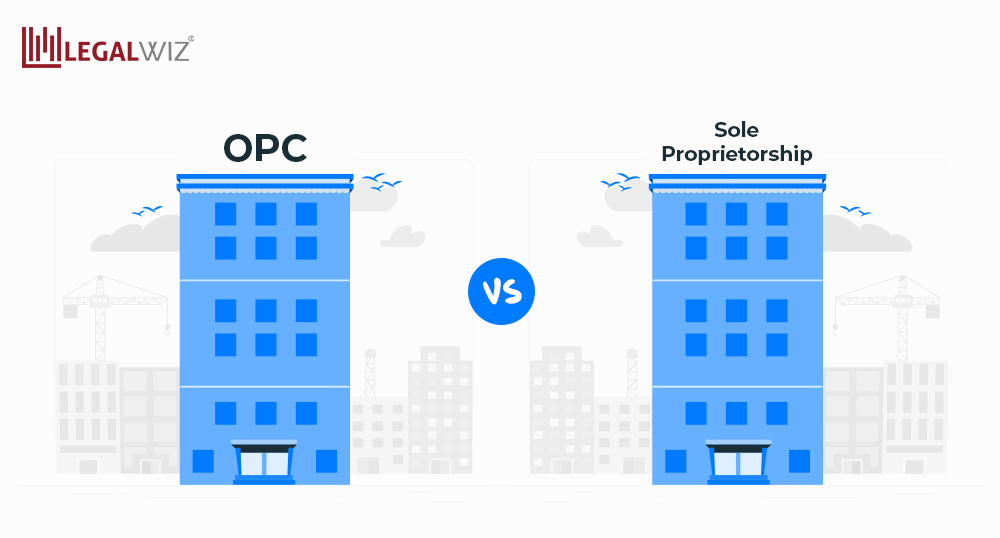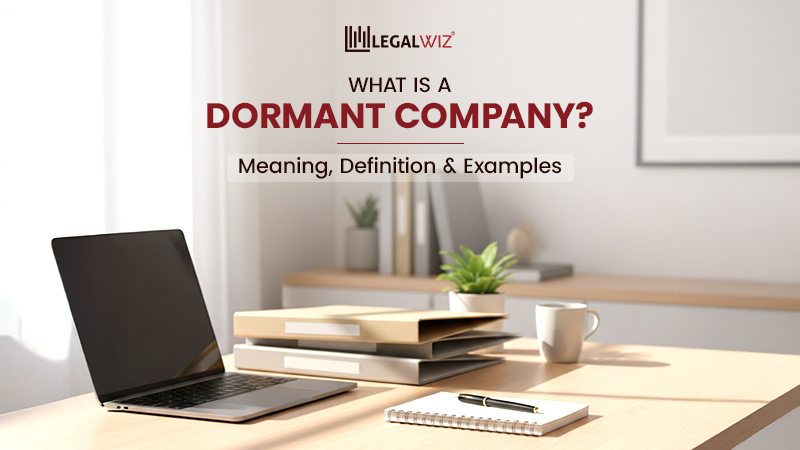What is the difference between OPC and sole proprietorship
Generally, business owners who have just initiated their business are baffled when it comes to opting for the right business structure for registering their business. One-person company (OPC) and sole proprietorship seem nearly identical, but specific distinctions are given below. You can opt for the right business structure based on the given inputs.
If you are initiating the business and eager to have complete control over it, you will have two options to select from: a one-person company (OPC) and the sole proprietorship. As you would expect, they both have their pros and cons, and you cannot say that one is better than the other without even a slight difference. The crisp answer is that the One Person Company registration is better for mid-sized businesses, while sole proprietorship registration is better for small businesses. Now, let’s examine the distinctions betwixt the two to check out which one is suits your business more.
Liability of the promoter
The sole proprietorship is entirely unprotected as his/her liability is unlimited. This means that if the business cannot repay its debts, the creditor can have your personal assets sold off to recover the amount. This can occur because a sole proprietorship is not a separate legal entity from its proprietor. While on the other end, the director of the one-person company (OPC) is entirely protected in such situations. As the entity is legally unique from its director, his/her personal assets are always protected. That’s why if your business does not involve much money, then you should go with the sole proprietorship, and if it is contrary, then you should go with the one-person company (OPC).
Start-up costs
The cost of sole proprietorship is primarily cheaper given that there is no need for registration. If you, as a person, obtain GST registration and license under the shops and establishment act, you are a sole proprietor. The costs of these registrations are minor, generally around Rs. Five thousand each. Getting an OPC registered shall have various registrations and formalities to be taken care of. It would cost around Rs. 15000.
| One-person company | Sole proprietorship |
| Separate entity – the proprietor and the business are considered as two separate entities. | Single entity – the proprietor and the business are defined as the single entity. |
| Limited liability – the proprietor’s liability is limited to his/her investment in the company. | Unlimited liability – as the proprietor and the business is a single entity, if the business incurs losses the owner will be liable for all of it. |
| Company taxation – the one-person company (OPC) is registered as a private limited company, thus, taxed under the income tax act for private companies. | Individual taxation – income generated by the company will be treated as the income of owner, and thus, taxed as an individual’s income. |
| Succession – a designated nominee can be appointed to run the company, in the event of demise of a managing member. The nominee has to be the Indian citizen, and resident of India. | Succession – in the case of the sole proprietorship, the business ends with the owner’s demise, as both are considered as a single entity. Thus, succession can only take place via execution of the last testament and will of the owner, where he/she passes on proprietorship to another person. |
Tax benefits
Neither has any tax benefits, so let’s keep that aside. With the one-person company, you require to pay taxes at a flat rate of 25%(subject to turnover) on profits. You are required to pay DDT (dividend distribution tax) and minimum alternate tax (MAT). Sole proprietors should pay at the individual slab rate but do have some conveniences; for instance, if your turnover is not more than Rs. one crore, you can declare profits at a flat eight per cent.
Annual compliances
Sole proprietorship requires only to submit ITR and maintain their books of accounts. At the same time, one-person company (OPC) should also have their books audited, make annual submissions and inform the RoC in case of any changes being made in the structure. OPC would spend at least Rs. Ten thousand on compliances.
Primarily, you are not obliged to choose betwixt the two. It relies on your business. If you are a one-person business with low risk, opt for a sole proprietor. Otherwise, you would like a formal structure such as a one-person company (OPC).

Benazir Shaikh
Benazir Shaikh is a company secretary pursuing her Internship at LegalWiz.in. She prospects to make a career in Legal & Secretarial field.







